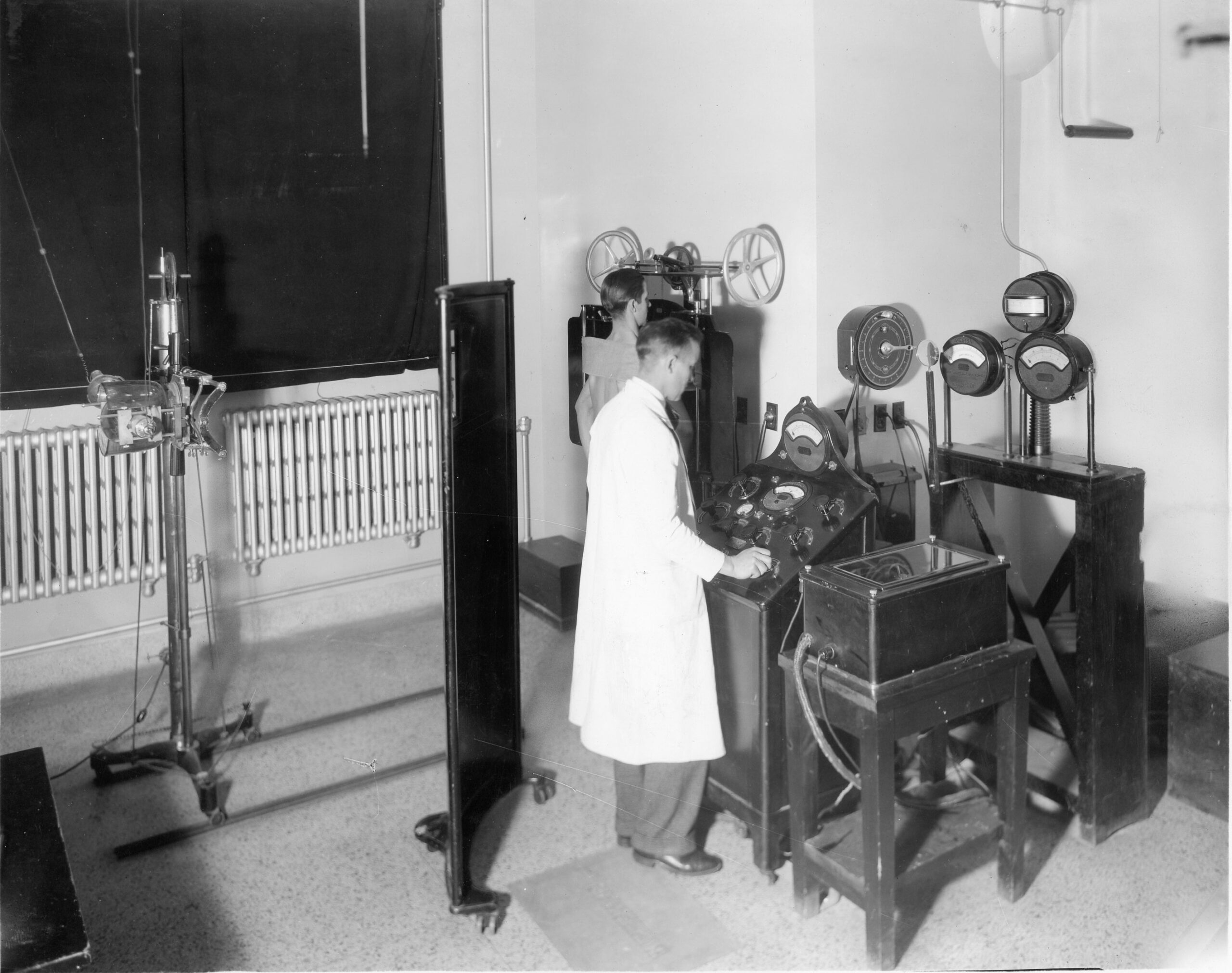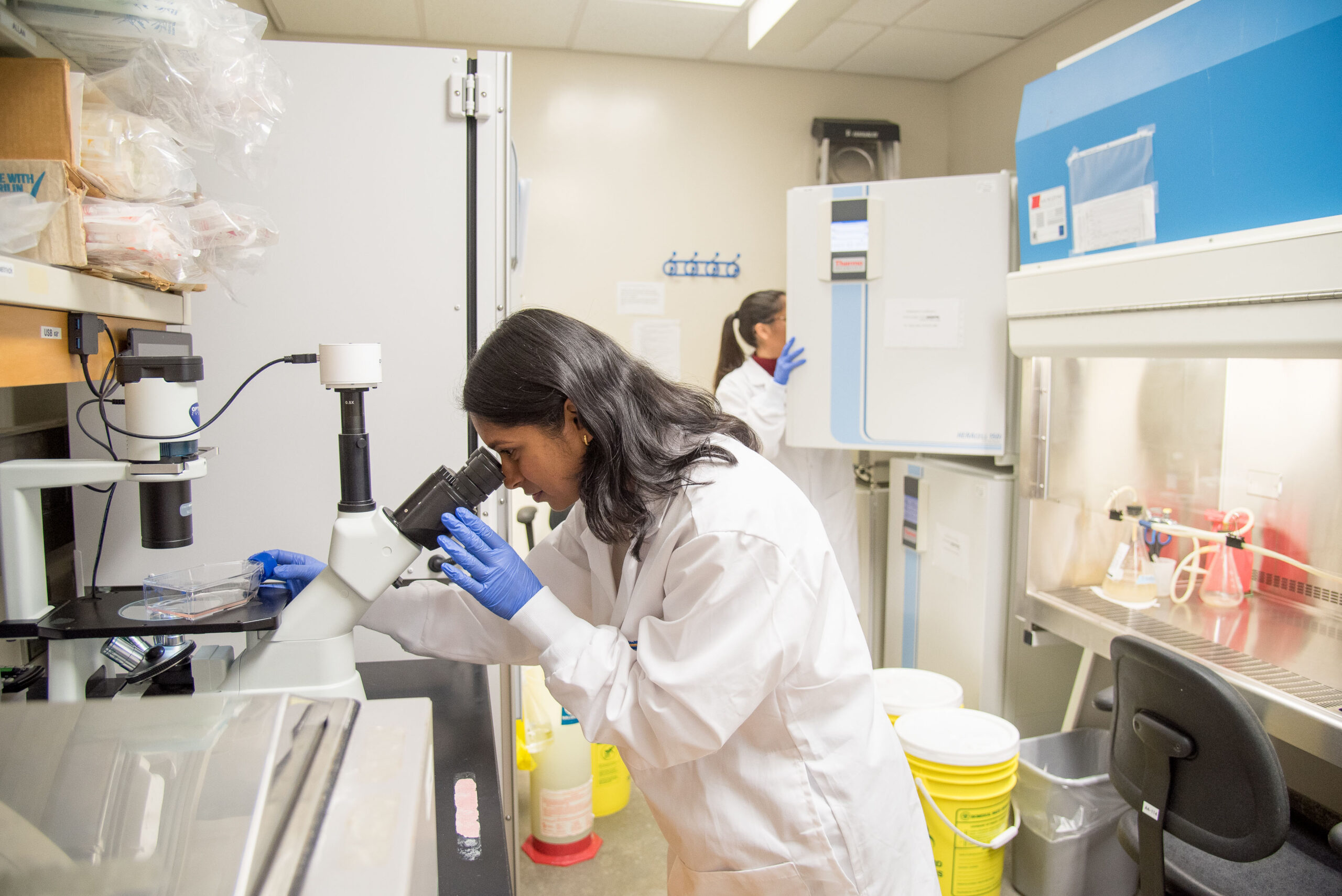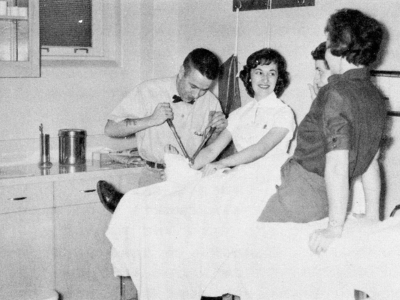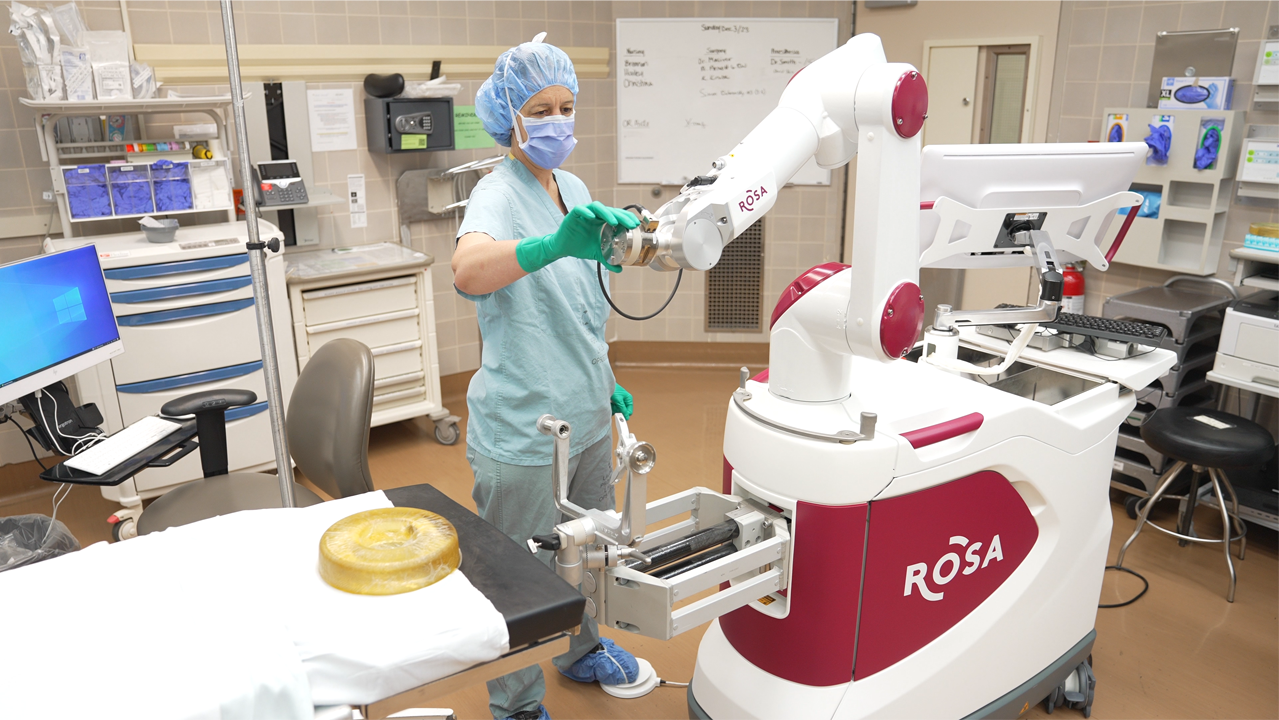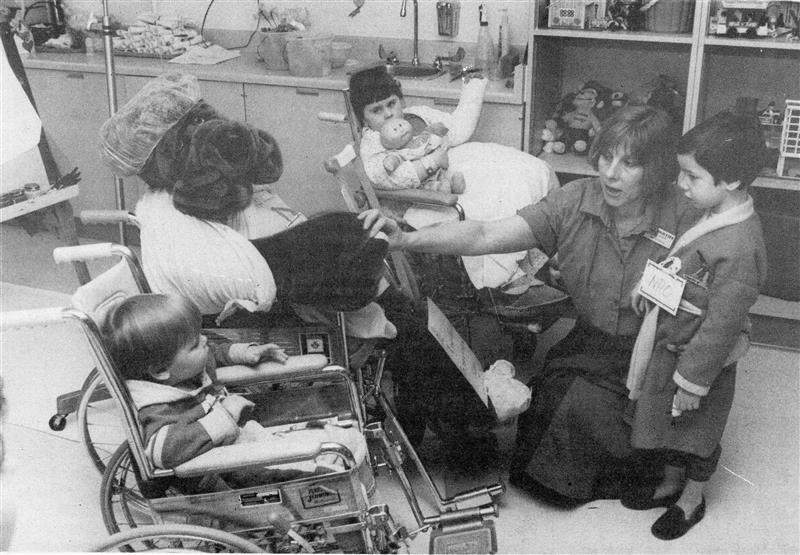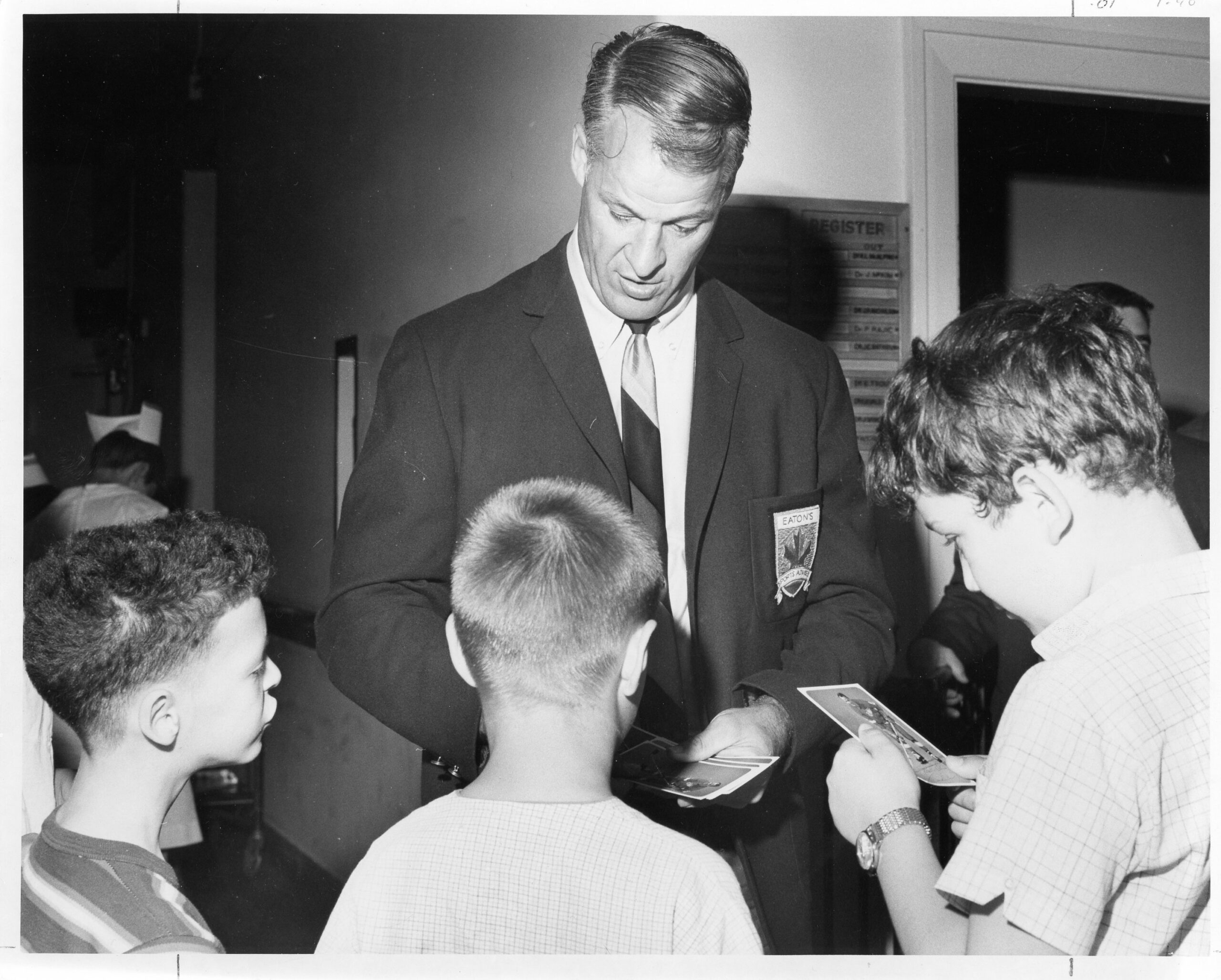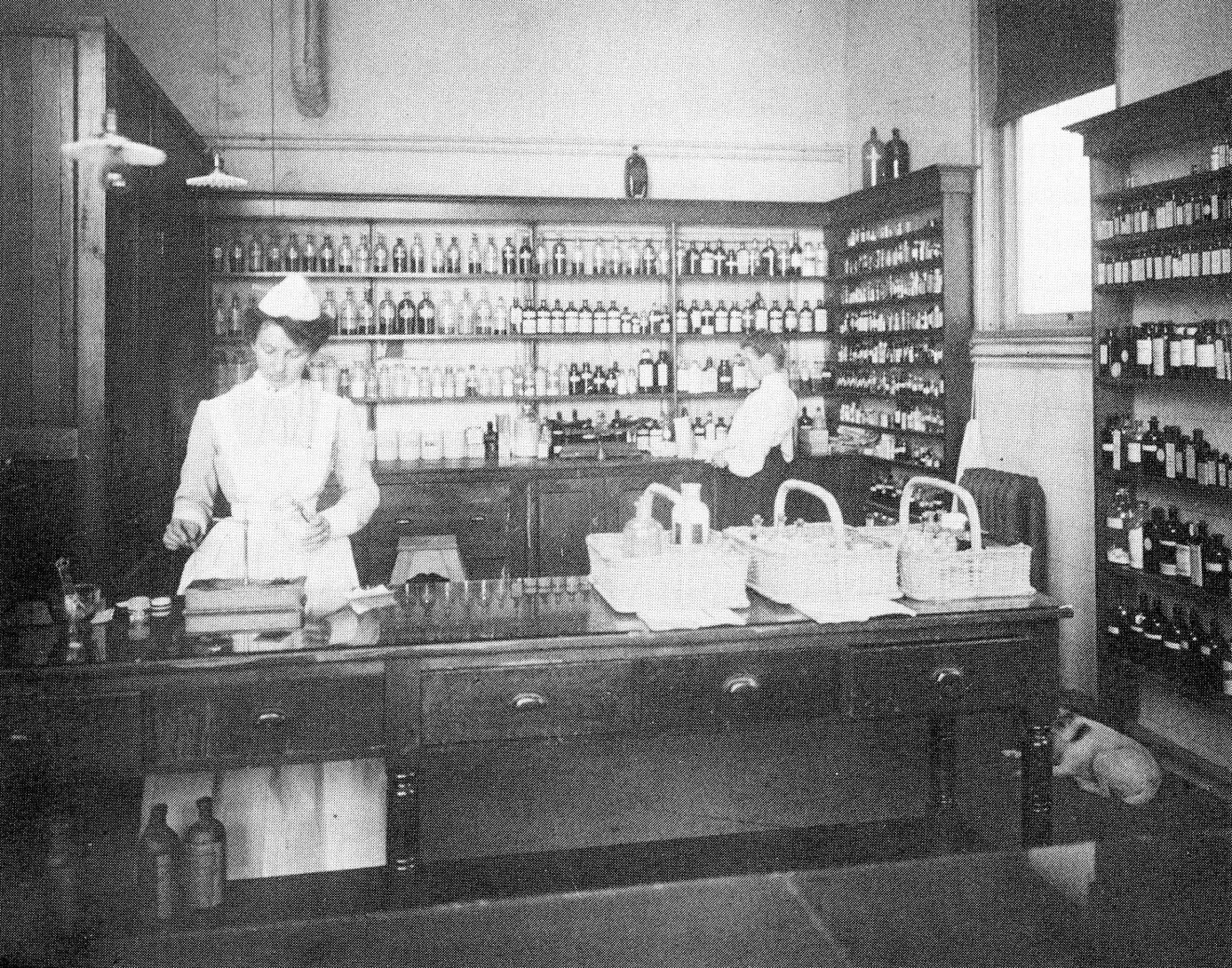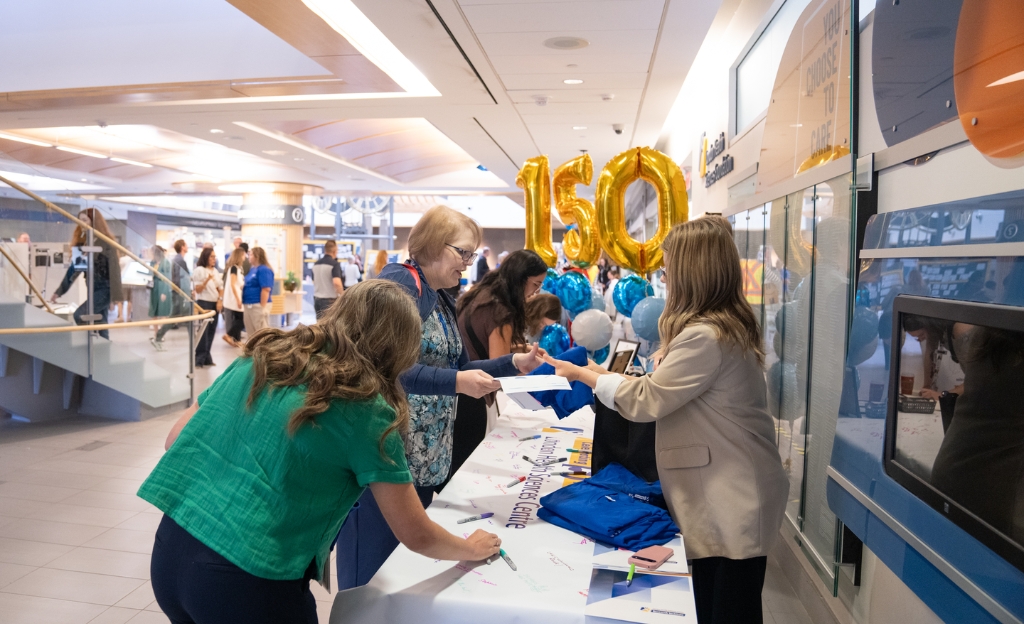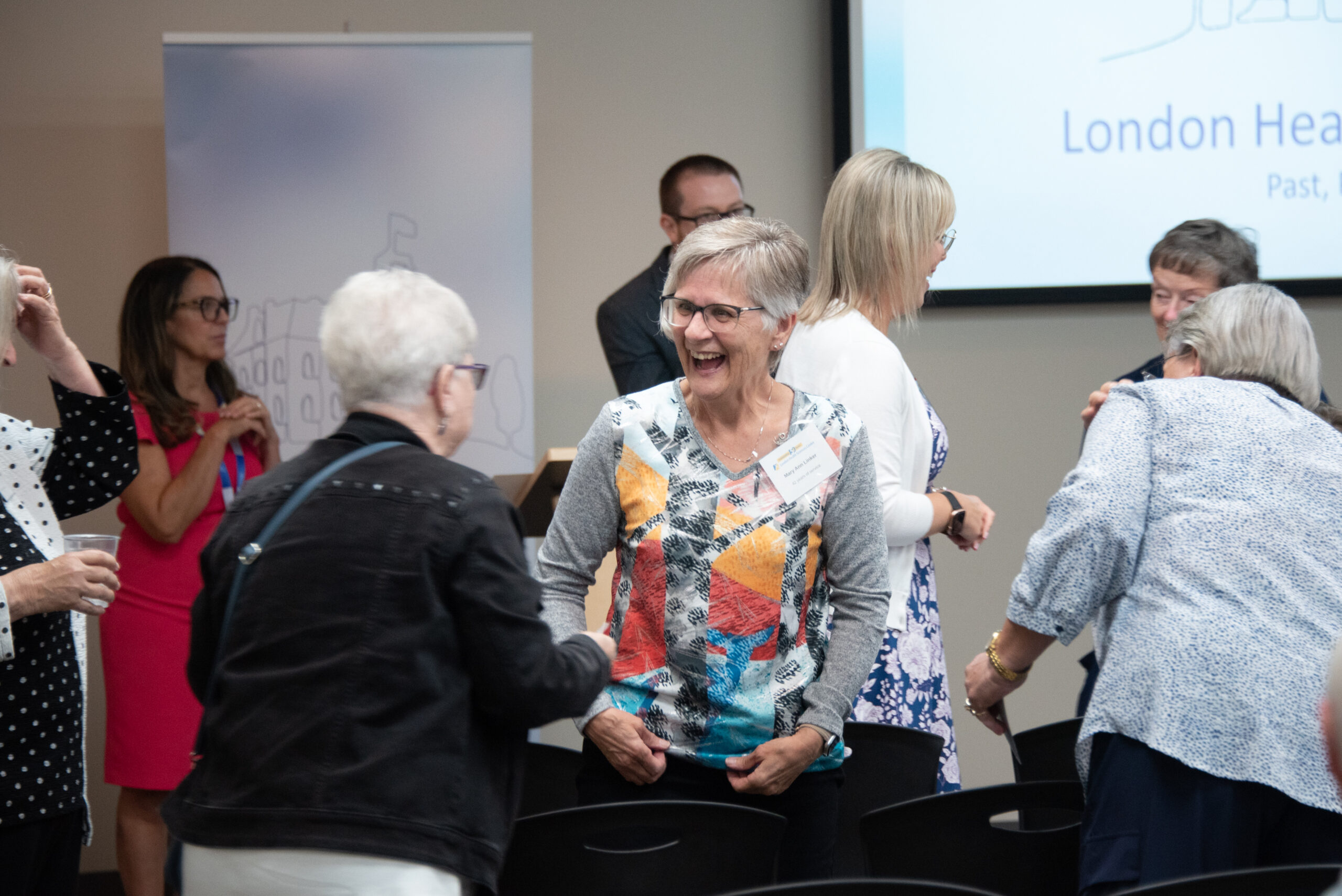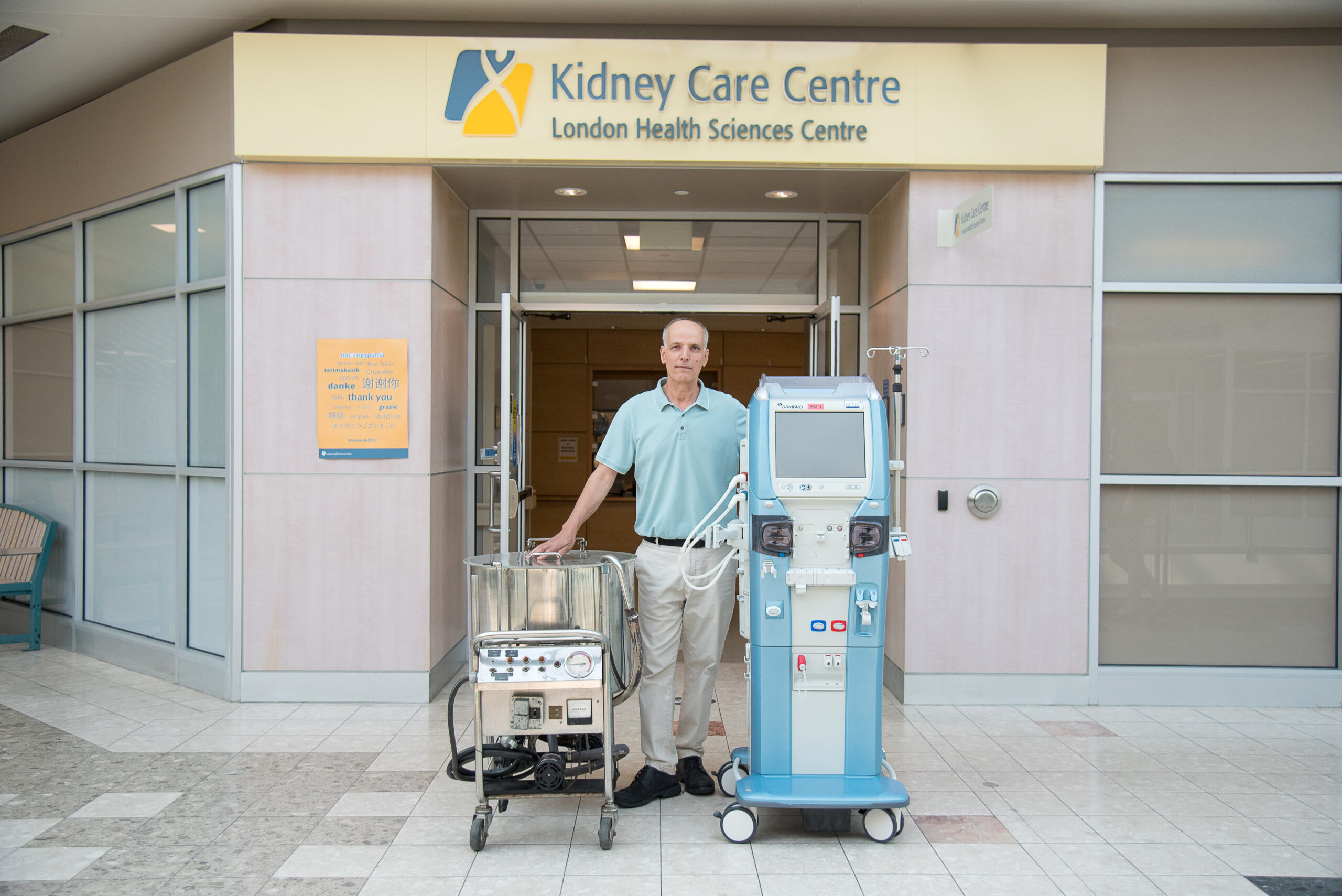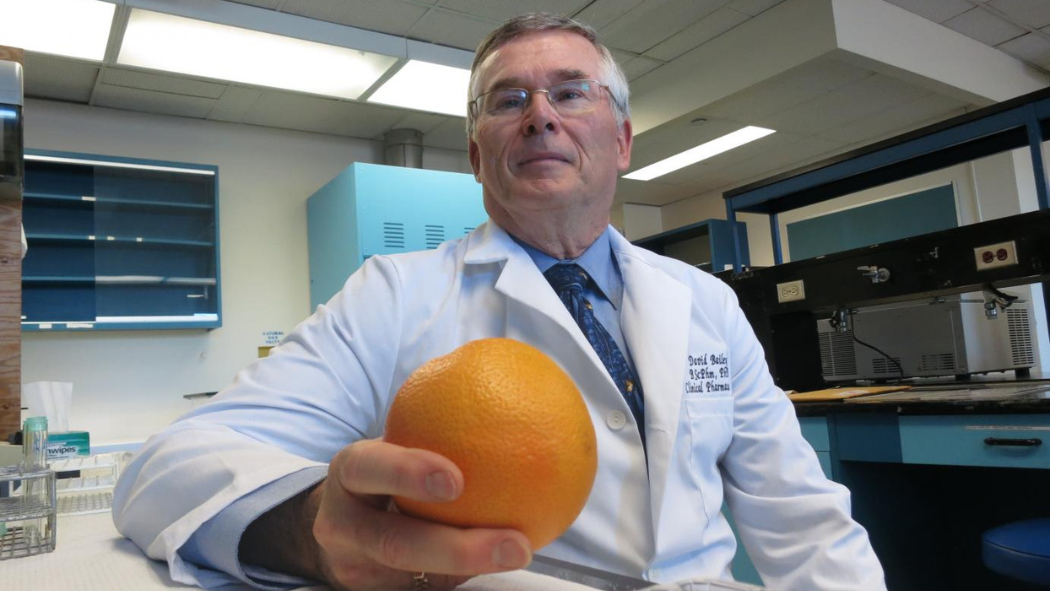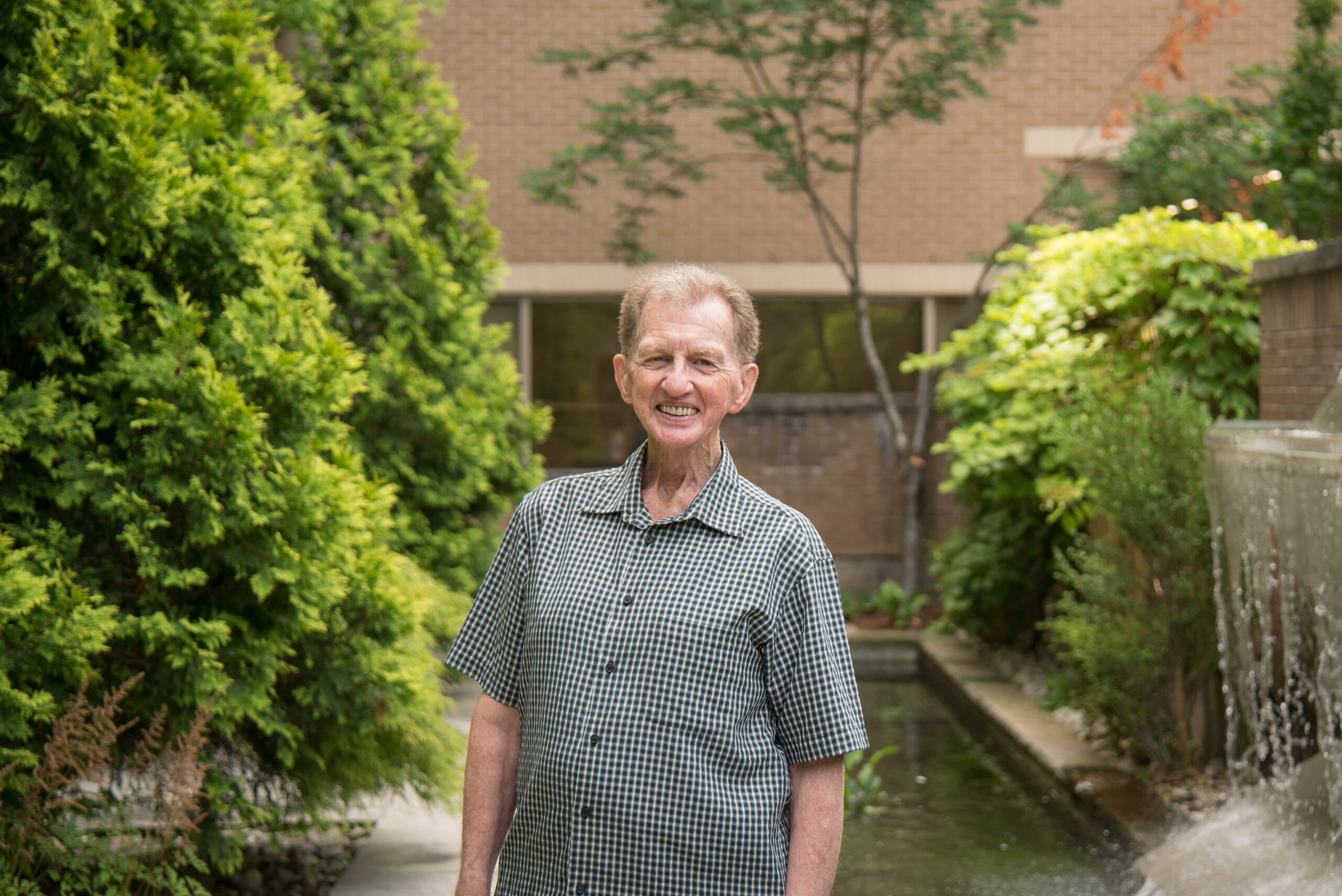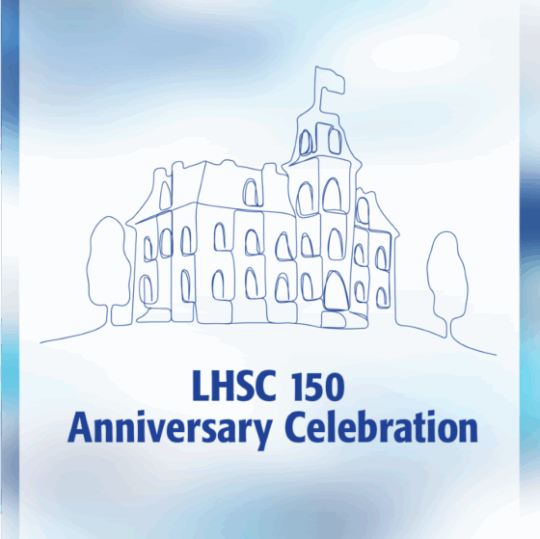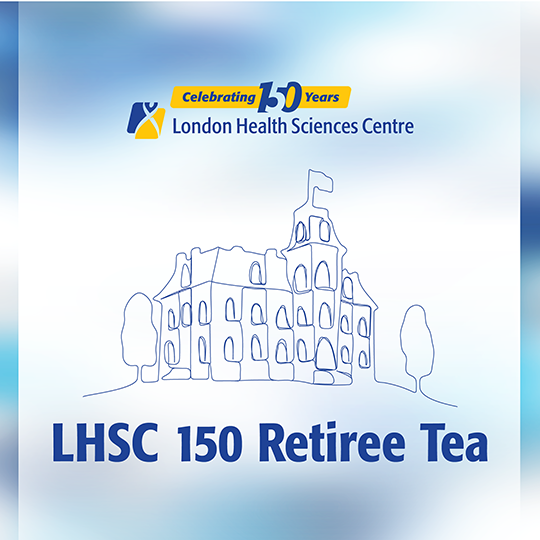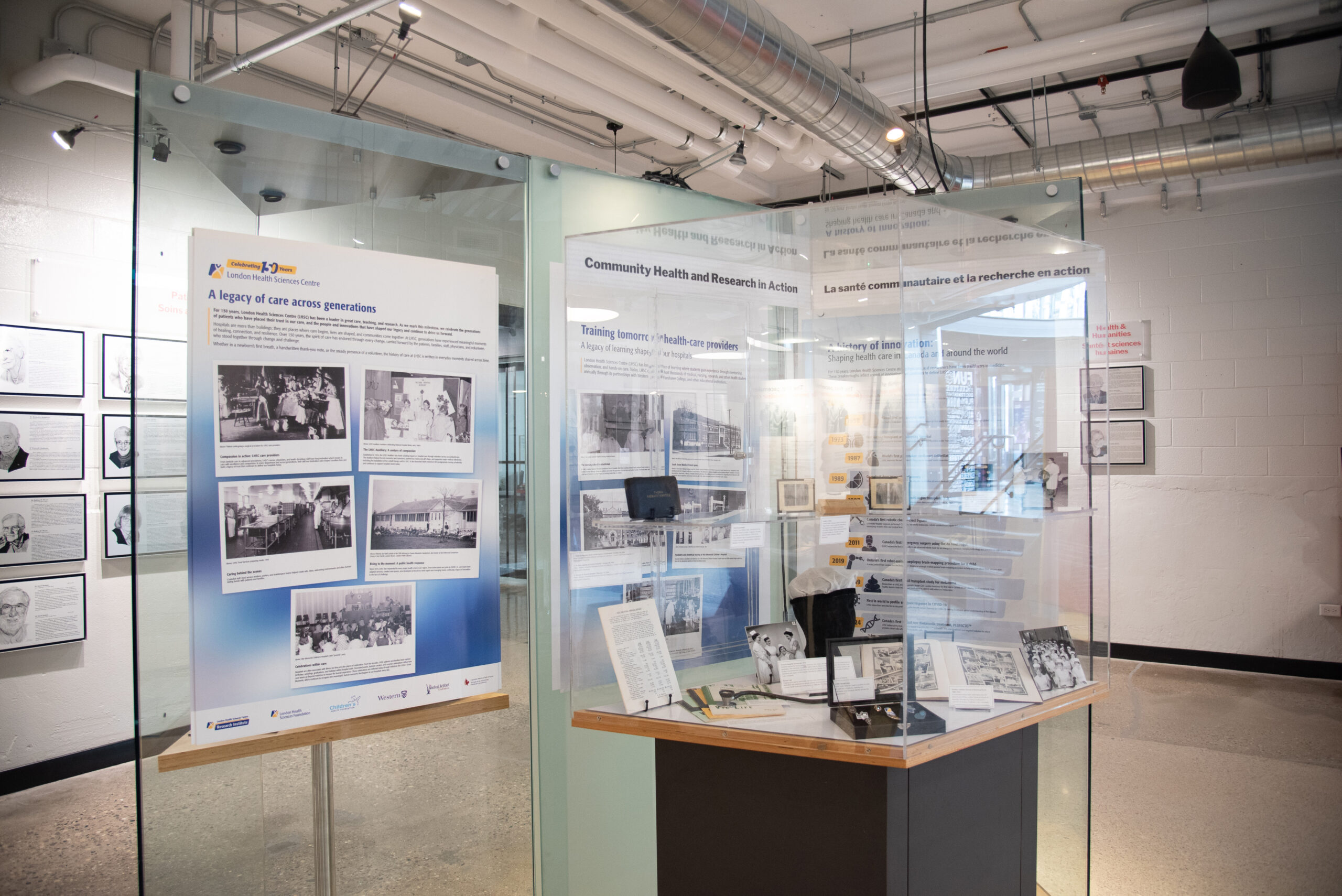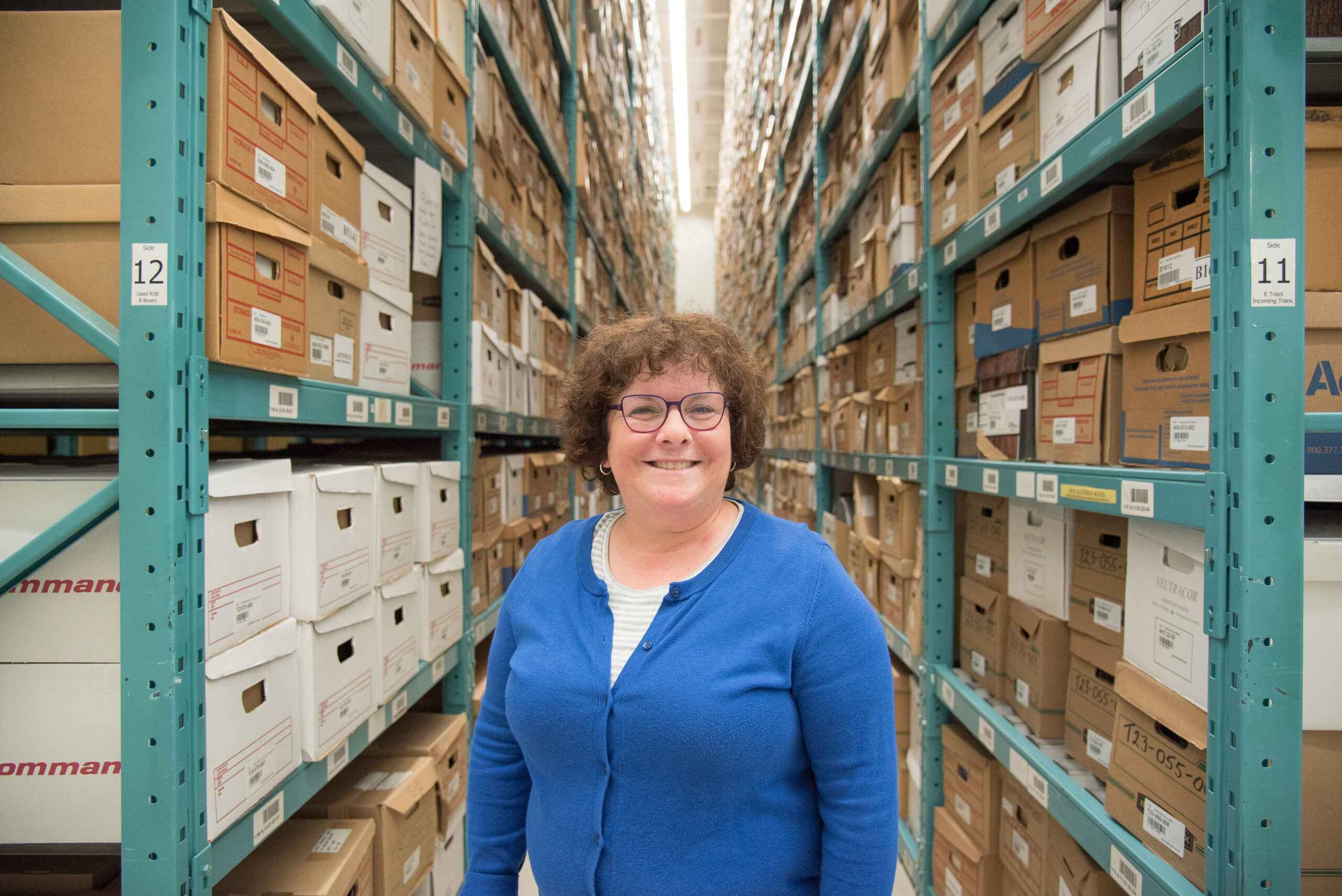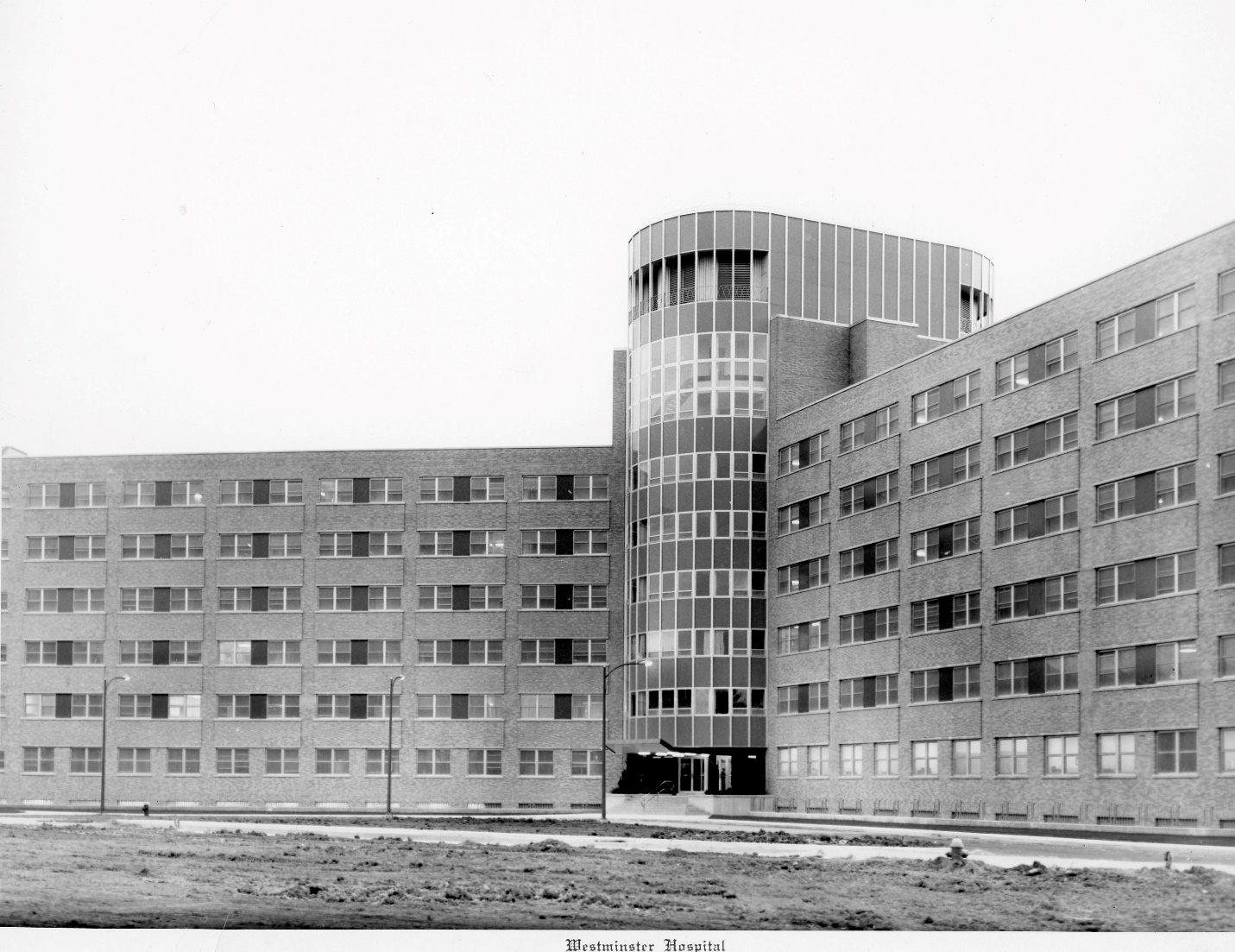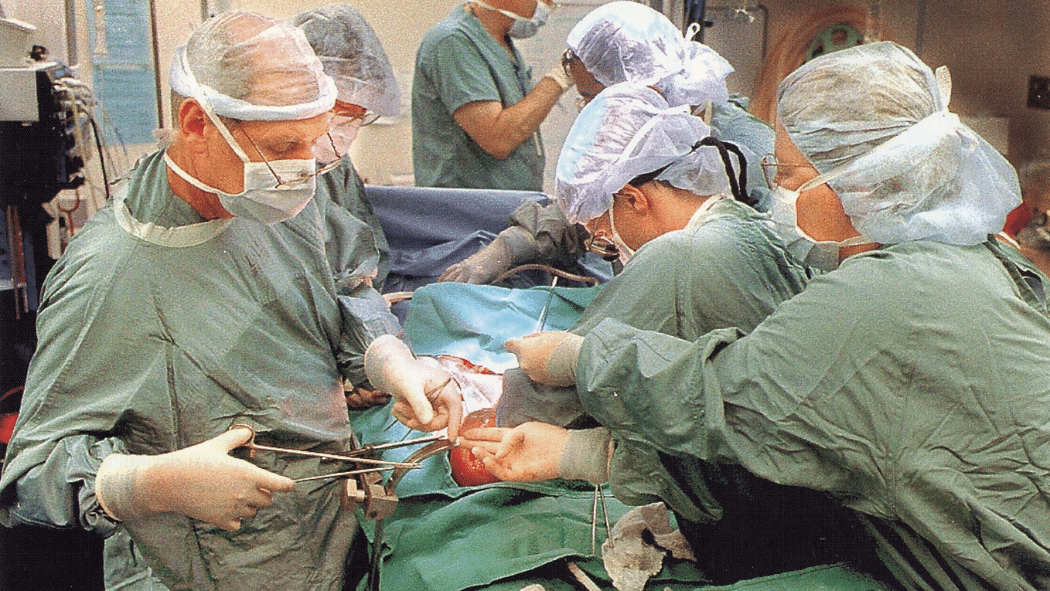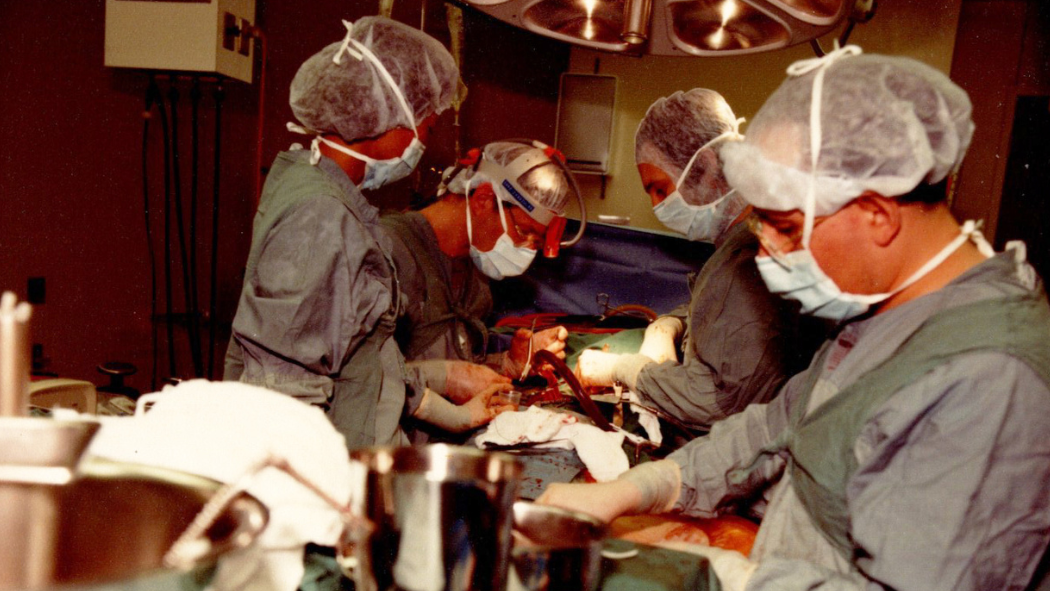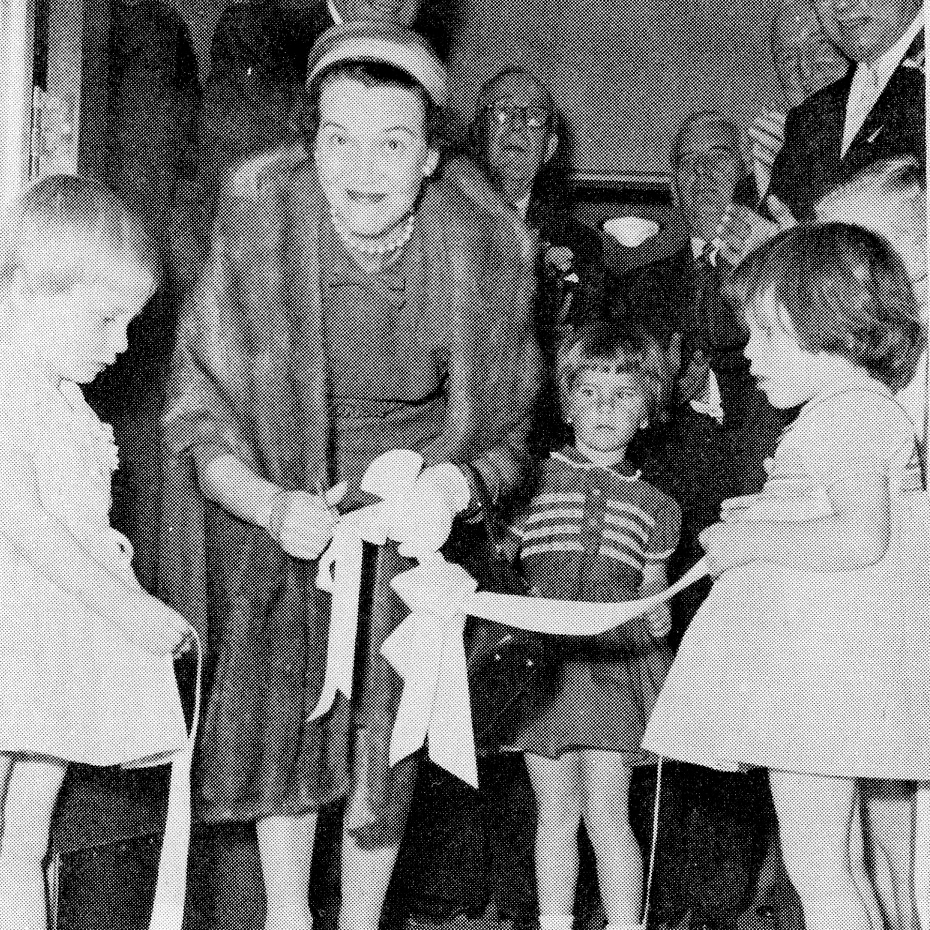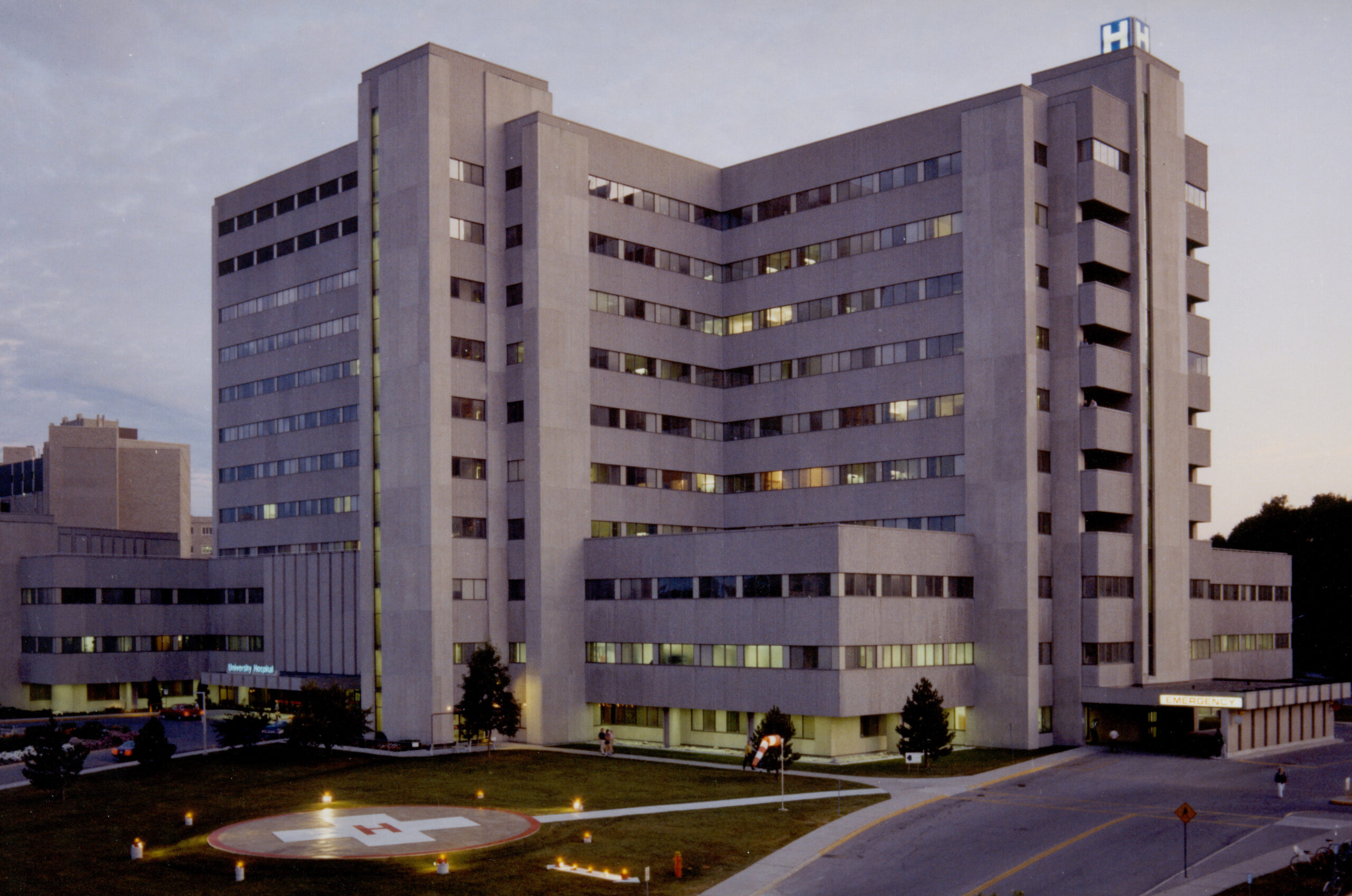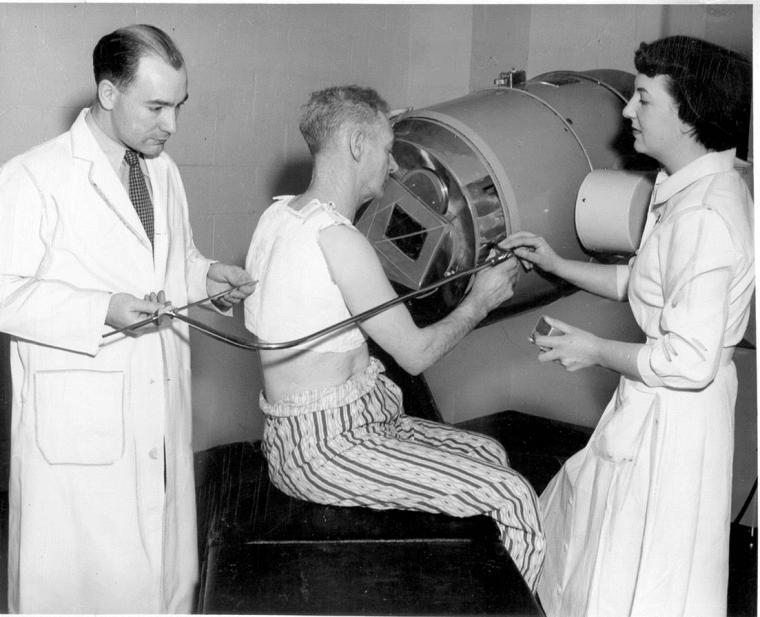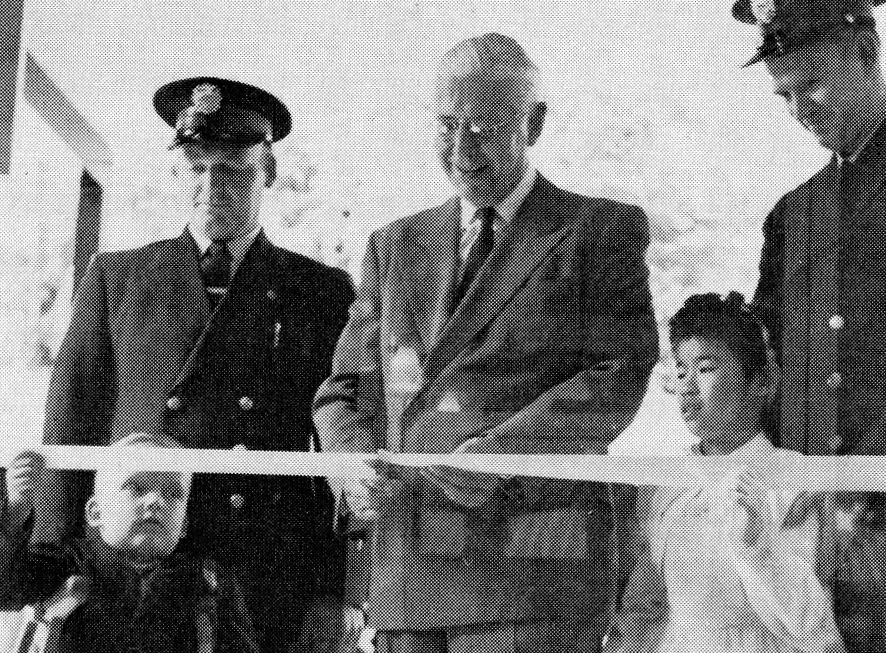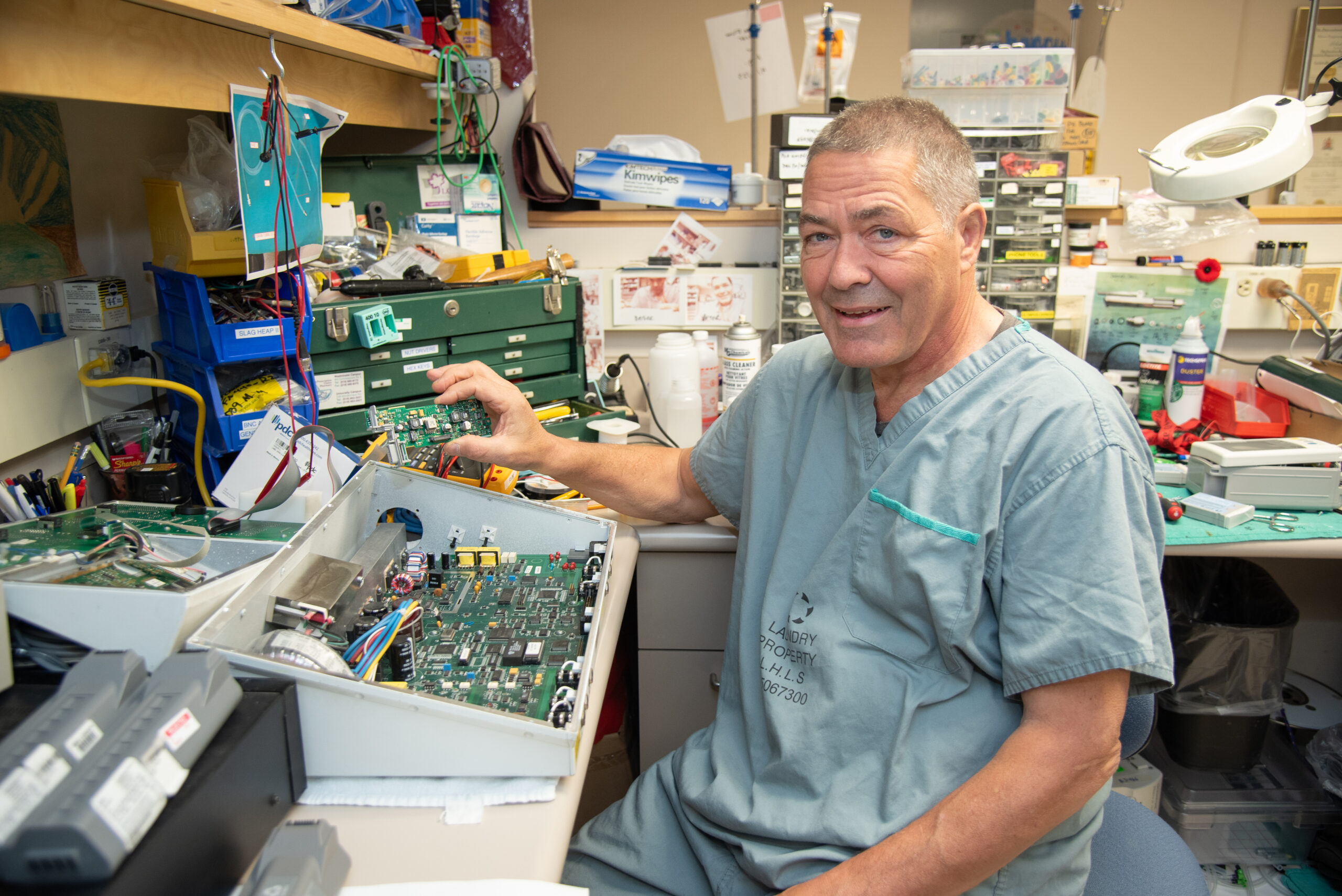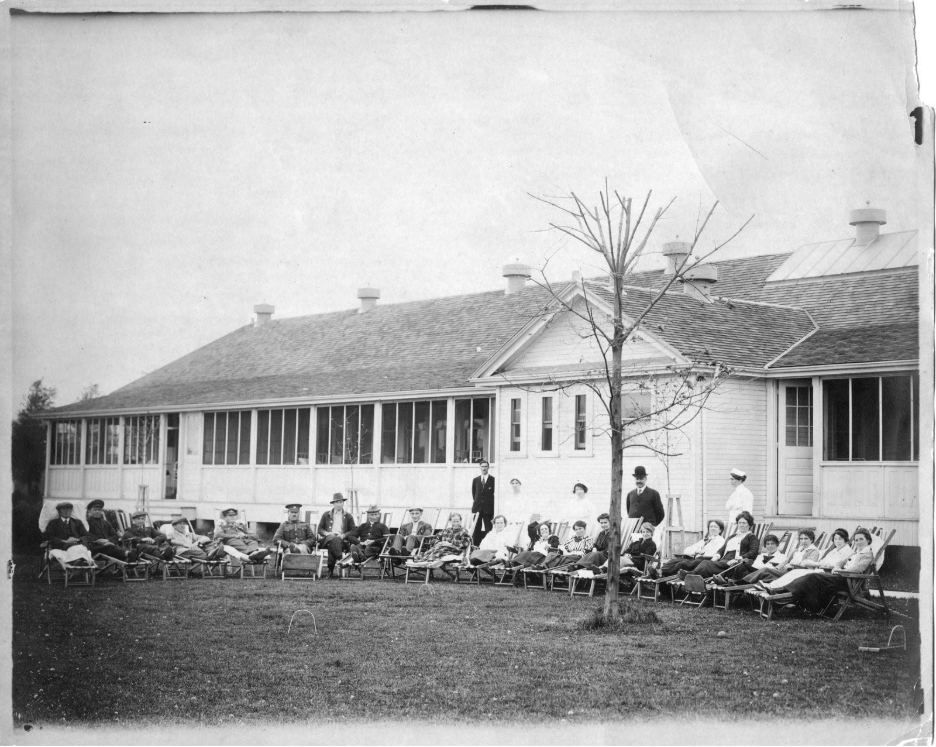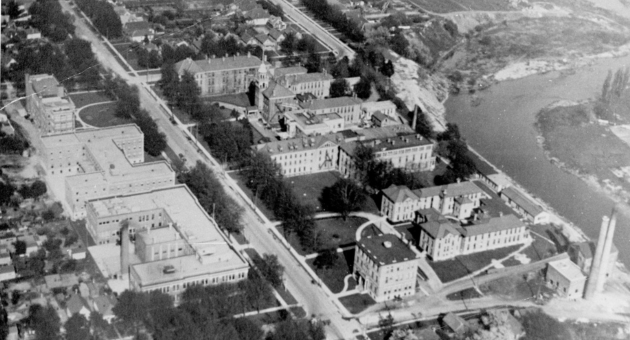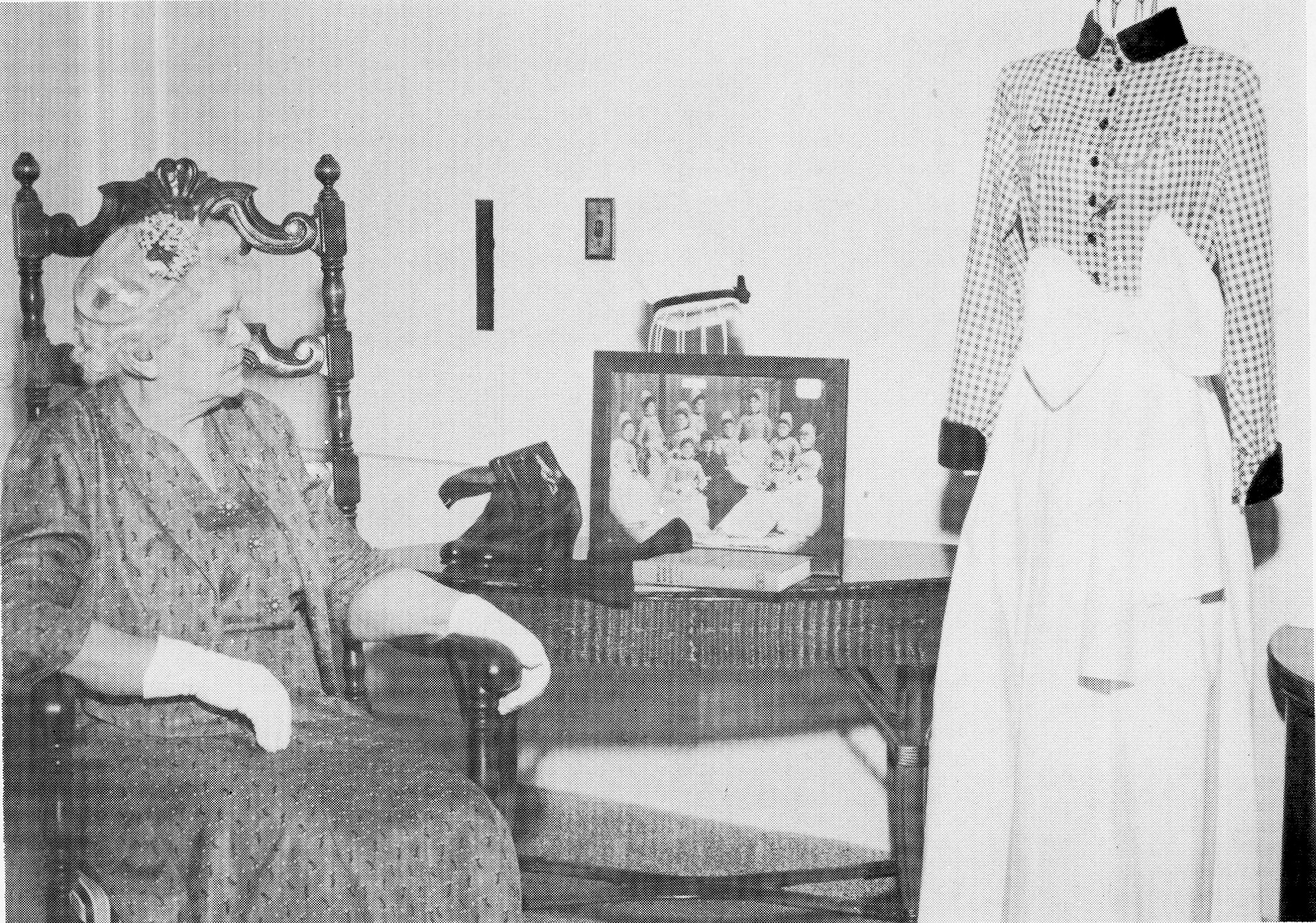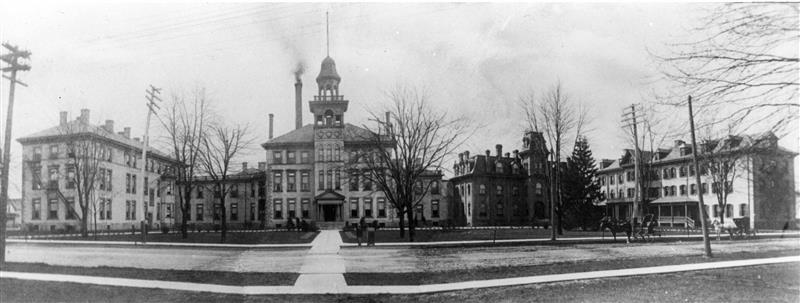A legacy of innovation
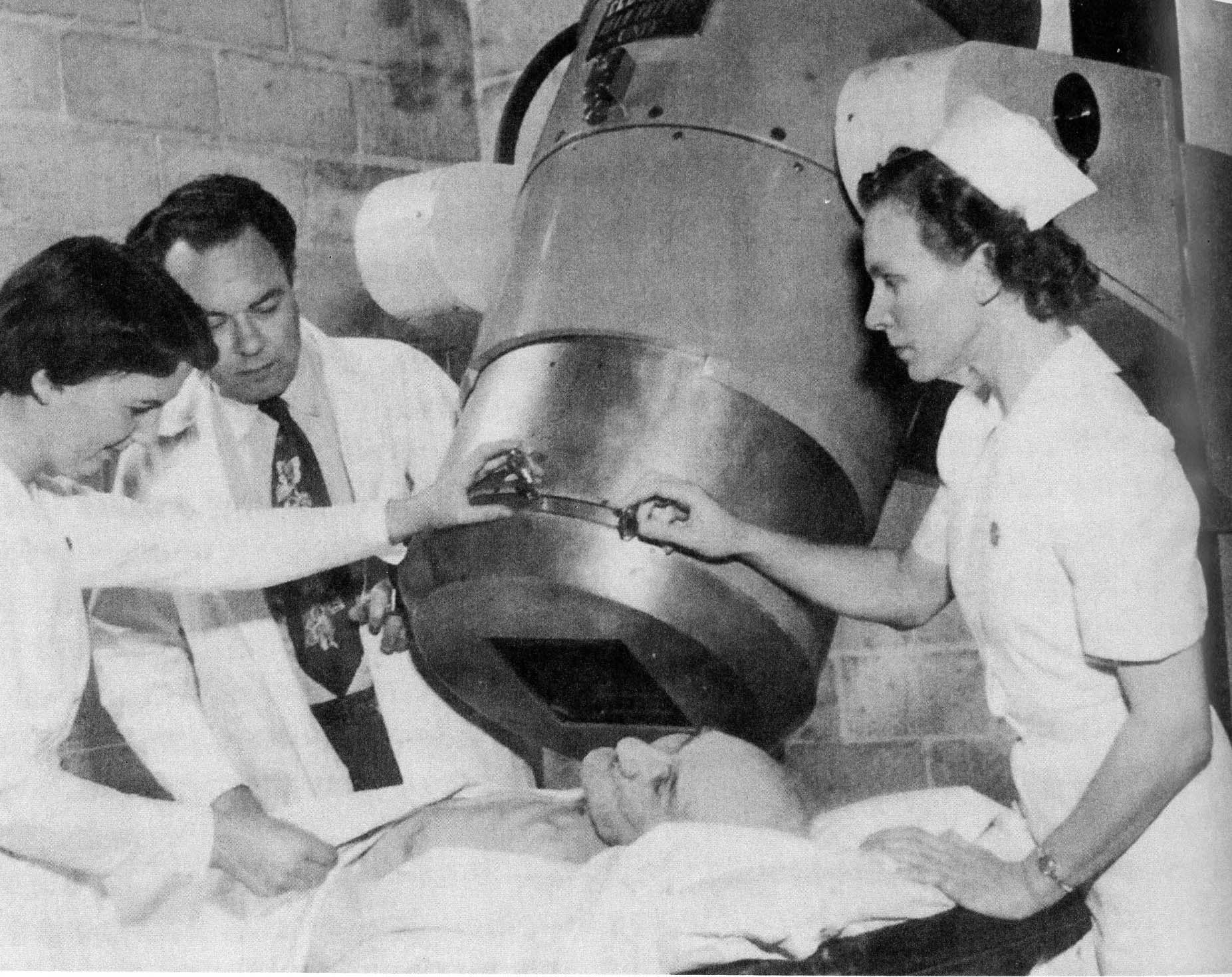
Above: The Cobalt-60 Beam Therapy unit, also known as the “Cobalt Bomb”, 1951
Since 1875, London Health Sciences Centre (LHSC) has been at the forefront of medical innovation, leading groundbreaking procedures and research that have transformed health care in Canada and beyond. As a research-intensive teaching hospital, LHSC care teams deliver specialized care that is enabled by research and clinical trials. From developing Canada’s first artificial kidney machine to recent breakthroughs that are transforming cancer care, LHSC has a history of more than 70 Canadian and world firsts in medicine.
One of these earliest firsts occurred in the field of genetics. In 1945, Dr. Murray L. Barr discovered the sex-chromatin, now known as the Barr body, which launched the field of genetics and provided new insights into the understanding of human chromosomes. That same year, Dr. Willem J. Kolff refined his concept for an artificial kidney machine capable of performing the kidney’s detoxification functions outside the body. His invention was used with a patient for the first time that same year, marking the beginning of the dialysis era.
Two years later, in 1951, LHSC revolutionized cancer treatment worldwide with the installation of the Eldorado Cobalt-60 radiation technology, known as the Cobalt Bomb, which doubled survival rates for early-stage cervical cancer and benefited an estimated 35 million patients.
“Research is at the heart of LHSC’s legacy,” explains David Hill, PhD, Interim Scientific Director for London Health Sciences Centre Research Institute (LHSCRI). “Without the integration of research and academics, LHSC would not have transformed into the specialized care hospital it is today.”
LHSC is known globally for its research profile and pioneering of surgical firsts. Dr. Charles Drake gained international recognition for his groundbreaking brain aneurysm surgery, drawing patients and surgeons from around the world to London. His research led to the development of the “Drake tourniquet,” a device designed to seal unusual brain aneurysms while preserving blood flow. His pioneering work transformed the lives of thousands of patients.
In 1973, a team at LHSC performed one of Canada’s first kidney transplants, paving the way for a program that has since saved countless lives. By 1981, LHSC achieved another world first by performing the first ever heart operation to correct life threatening right ventricular dysplasia. Just two years later in 1983, LHSC’s University Hospital became the first in Canada to perform a heart lung transplant and later that same year completed Ontario’s first paediatric heart transplant.
Also in 1983, Victoria Hospital and Upjohn jointly open the Victoria Upjohn Clinical Research Unit at South Street Hospital (formerly Victoria Hospital), focusing on Phase I-III clinical trials. In 1990, Victoria Hospital assumed operations of the clinical research unit at South Street, renaming it the Victoria Clinical Trials Centre. It was renamed again to London Health Sciences Centre Research Inc. in 1997 as it became a fully incorporated research institute responsible for all hospital-based research at Victoria Hospital, University Hospital, and South Street Hospital. In 1997, LHSC became the first hospital in Canada to perform video-assisted minimally invasive heart surgery using the da Vinci Surgical System, which later led to the establishment of the Canadian Surgical Technologies and Advanced Robotics (CSTAR) training centre in London. By 2001, LHSC researchers completed a world first study showing that surgery rather than medication was key to improving quality of life for those with temporal lobe epilepsy.
The 2000’s saw LHSC continue to push the boundaries of medical advancement, including through the establishment of Lawson Health Research Institute, a joint research institute brand with St. Joseph’s Health Care London.
“The incredible research we’ve seen and continue to see from scientists across LHSC over the past 25 years is outstanding,” adds Hill, who served as Scientific Director for Lawson Health Research Institute from 2000 to 2024 when LHSC and St. Joseph’s collaboratively launched new research institute brands. “They’ve changed the standard of care across several areas in medicine and surgery, benefitting patients locally, nationally, and around the world.”
In 2018, LHSC surgeons achieved another world first by performing a robotic aortic valve replacement using the da Vinci robot, a technique that reduced recovery time and minimized patient risk. During the COVID-19 pandemic, LHSC researchers drove forward numerous discoveries, including being the first to profile the body’s immune response to the virus.
Most recently, in 2024, LHSC became the first hospital in Canada to treat a publicly funded patient with a new prostate cancer therapy. This treatment uses a radiopharmaceutical that selectively targets cancerous cells, while leaving other cells alone.
Through London Health Sciences Centre Research Institute (LHSCRI), LHSC continues to drive forward new advancements in care with more than 2,700 clinical research projects each year.
“As we celebrate 150 years of excellence, we look back with pride at the achievements that have shaped our institution, but we also look forward to the future,” says Hill. “The next generation of breakthroughs and advancements will continue to build on this rich legacy of transformative care, ensuring that LHSC remains a leader in health care for many years to come.”
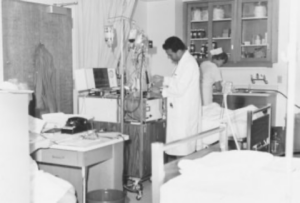
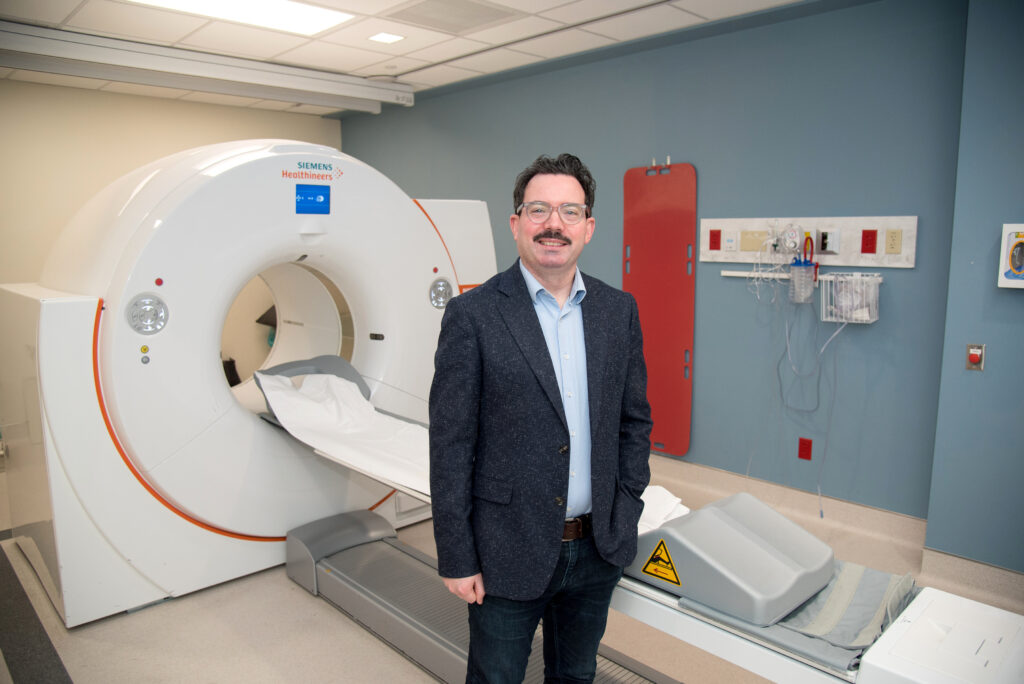
LHSC is celebrating 150 years of care, innovation, and community impact by sharing 150 moments from our history. Join us in marking this milestone by sharing your own LHSC story.
